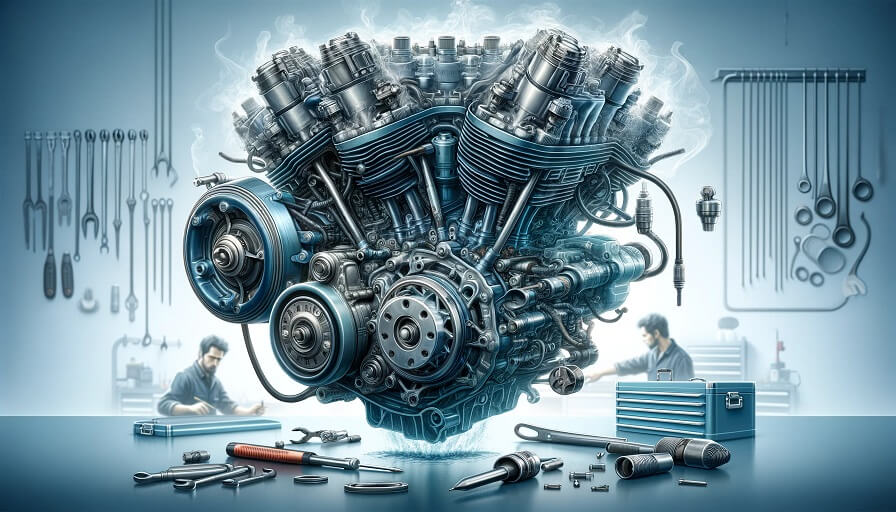The proper maintenance of a vehicle’s engine is fundamental for its longevity and optimal performance. Specifically, managing the engine oil is a key component of this maintenance. Nonetheless, it is not uncommon to encounter situations where a car appears to burn oil more rapidly than usual. This circumstance is a cause for concern, as it could signify underlying issues with the vehicle. In this article, we investigate the common reasons why an engine might burn oil and provide expert insights into diagnosing and resolving the problem.
Common Causes of Oil Burning in Vehicles
- Clogged Crankcase Ventilation: The crankcase holds the crankshaft and the engine oil. If the ventilation system gets clogged, it can lead to oil blowback into the combustion chamber, causing the engine to burn oil.
- Faulty PCV Valve: The Positive Crankcase Ventilation (PCV) valve plays a crucial role in directing exhaust gases back into the combustion chamber. A malfunctioning PCV valve can cause these gases to mix with the oil, leading to burning.
- Leaking Seals or Gaskets: Over time, the seals and gaskets in your engine can wear out, leading to internal oil leaks. This often results in oil burning and can be identified by blue smoke from the exhaust.
- Poor or Wrong Oil Quality: Using oil that is of low quality or the wrong viscosity can lead to increased oil consumption. High-quality oil with the correct viscosity is essential for proper engine function.
- Worn Piston Rings or Pistons: These components seal the combustion chamber. If they wear out, oil can seep into the chamber and burn, leading to decreased engine efficiency and increased oil consumption.
- High Oil Pressure: Excessive oil pressure, often due to clogs in the system, can lead to increased oil consumption. Regular maintenance is key to preventing this issue.
- Bad Valve Seals: Valve stem seals regulate oil consumption and lubrication. If these seals fail, it can lead to significant oil loss and burning.
- Old, Worn-out Engine: An engine that has seen many miles may start to consume more oil due to general wear and tear. This is common in older vehicles.
Diagnosing and Fixing the Issue
- Checking Oil Condition and Type: Regularly check your oil’s level and quality. Ensure you’re using the manufacturer-recommended oil type for your vehicle.
- Troubleshooting the Cause: Look for signs like blue smoke from the exhaust or oil residue in the coolant reservoir. These symptoms can help pinpoint the issue.
- Professional Assessment: If you’re unsure about the cause of the oil burning, it’s best to consult with a professional mechanic. They can provide a thorough diagnosis and suggest the best course of action.
Preventative Measures and Maintenance
- Regular Oil Changes: Stick to a regular oil change schedule as recommended by your vehicle’s manufacturer. This is crucial for engine health.
- Routine Engine Checks: Regularly inspect your engine for signs of wear and tear, and address any issues promptly.
- Monitoring for Symptoms: Keep an eye out for any unusual signs, such as strange noises, smoke, or oil leaks. Early detection can prevent more serious problems.
Conclusion
Addressing the issue of your motorcycle or car burning oil is crucial for maintaining its health and efficiency. By understanding the common causes and taking proactive steps for maintenance and repair, you can ensure that your vehicle remains in top condition. Remember, when in doubt, always seek professional advice to keep them running smoothly.



